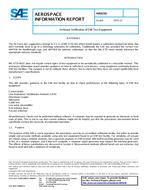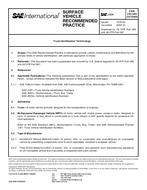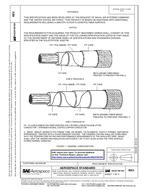This procedure provides methods to determine the appropriate inertia values for all passenger cars and light trucks up to 4540 kg of GVWR. For the same vehicle application and axle (front or rear), different tests sections or brake applications may use different inertia values to reflect the duty-cycle and loading conditions indicated on the specific test.
Product Details
- Published:
- 08/01/2010
- File Size:
- 1 file , 120 KB


